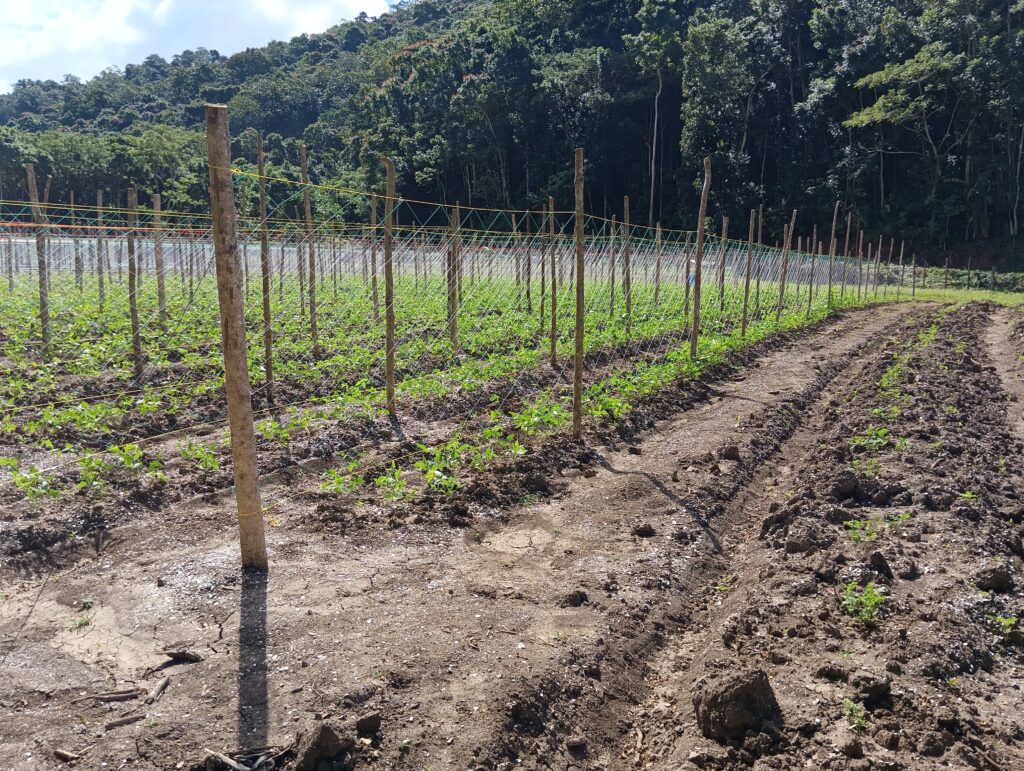Jui Visi Farms are integral to our Organic Export Program.

Commercial farming, also known as industrial or large-scale farming, involves the cultivation of crops and raising livestock for sale in markets, often using advanced techniques, machinery, and technology. It plays a crucial role in meeting the global demand for food, raw materials, and biofuels. Below are the benefits and advantages of commercial farming:
1. High Productivity
- Large-Scale Production: Cultivating vast areas of land increases the output of crops or livestock, meeting the needs of both domestic and international markets.
- Efficient Use of Resources: Advanced machinery and technology enable efficient planting, harvesting, and processing.
2. Economic Growth
- Revenue Generation: Commercial farming contributes significantly to the GDP of many countries.
- Export Potential: Producing surplus goods for export generates foreign exchange and boosts economic stability.
- Employment Opportunities: Creates jobs in farming, logistics, processing, and associated industries.
3. Technological Advancement
- Mechanization: Use of modern machinery reduces labor costs and improves efficiency.
- Precision Agriculture: Technologies like GPS, drones, and sensors optimize resource usage (e.g., water, fertilizers) and increase yields.
- Genetically Modified Crops: Use of GMO crops enhances resistance to pests, diseases, and harsh weather conditions.
4. Food Security
- Consistent Supply: Ensures a stable and reliable supply of food for growing populations.
- Diverse Products: Produces a variety of crops and livestock to meet diverse dietary and industrial needs.
5. Cost Efficiency
- Economies of Scale: Bulk production reduces per-unit costs of crops and livestock, making food more affordable for consumers.
- Market Access: Large-scale operations often have better access to markets, suppliers, and distributors.
6. Resource Utilization
- Maximizes Land Use: Converts underutilized or marginal land into productive agricultural zones.
- Integrated Systems: Combines crop cultivation and livestock rearing for mutual benefits, such as using crop residues as animal feed.
7. Contribution to Industrial Growth
- Raw Materials: Supplies essential inputs for industries like textiles, food processing, pharmaceuticals, and biofuels.
- Agribusiness Opportunities: Creates opportunities for businesses in packaging, logistics, and agricultural equipment.
8. Innovation and Research
- Investment in R&D: Commercial farming often drives agricultural innovation, improving crop varieties, pest control methods, and sustainable practices.
- Adoption of Best Practices: Promotes efficient irrigation, soil management, and waste recycling techniques.
9. Global Trade and Market Integration
- Trade Opportunities: Connects local farmers to global markets, increasing competitiveness and profitability.
- Economic Integration: Facilitates international cooperation and partnerships in agriculture.
10. Environmental Benefits (With Sustainable Practices)
- Efficient Water Use: Advanced irrigation systems like drip irrigation minimize water wastage.
- Land Rehabilitation: Can convert degraded lands into productive areas with proper planning.
- Sustainable Energy: Adoption of biofuels and renewable energy sources in farming operations.
11. Risk Mitigation
- Crop Insurance: Commercial farmers often have access to insurance, reducing financial risks from crop failure or natural disasters.
- Diverse Outputs: Producing multiple crops or livestock reduces dependency on a single product.
12. Community Development
- Infrastructure Improvements: Commercial farming drives the development of rural infrastructure like roads, storage facilities, and markets.
- Skill Development: Provides training opportunities for workers, enhancing local expertise in modern farming techniques.
Challenges to Address:
While commercial farming has numerous benefits, it also comes with challenges:
- Environmental Concerns: Intensive farming can lead to soil degradation, deforestation, and loss of biodiversity if not managed sustainably.
- Initial Investment: High costs for land, machinery, and technology.
- Market Fluctuations: Prices of agricultural commodities can be volatile.
- Social Impact: May displace smallholder farmers or lead to unequal land distribution.
Why Invest in Commercial Farming?
- Growing Global Demand: Rising populations and urbanization drive the need for more food and raw materials.
- Technological Advances: Modern tools and techniques make farming more efficient and sustainable.
- Profit Potential: With proper planning and market access, commercial farming can be highly profitable.
By combining efficiency with sustainability, commercial farming offers a pathway to meet global food needs while driving economic growth and innovation.
